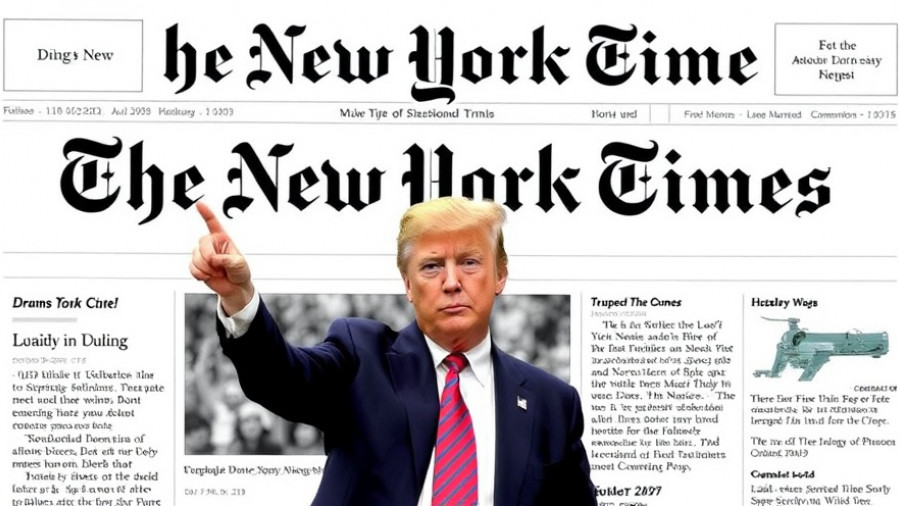
Trump Strikes Back: The $15 Billion Lawsuit Explained
In a dramatic return to the courtroom, former President Donald Trump has refiled a staggering $15 billion lawsuit against The New York Times. This lawsuit, stemming from alleged defamation due to editorial decisions that Trump claims have irreparably harmed his reputation, underscores a continuing battle between him and major media outlets that has lasted for years.
Historical Context: Trump vs. Media
Trump's fraught relationship with the media is well-documented. Since his time on the campaign trail, the former president has characterized news coverage as "fake" whenever it does not align with his interests. This lawsuit represents another skirmish in a long-standing war for narrative control, emphasizing how public figures often use legal avenues to counter negative press.
Past Lawsuits Set the Stage
Throughout his career, Trump has not shied away from legal action against those he perceives to have wronged him. He previously sued The New York Times in a similar context just months ago, attempting to hold them accountable for articles he claimed were misleading. His legal strategy seems to hinge on amplifying the message that he will not accept unflattering portrayals silently.
Understanding Defamation Claims
Defamation is a serious claim, requiring the plaintiff (in this case, Trump) to prove that a statement was false and damaging to his reputation. The stakes are high: victory could potentially lead to significant financial compensation and further validation of Trump’s claims against mainstream media sources. It raises important questions about freedom of the press and the limits of journalistic integrity.
Media’s Response and Implications
The New York Times, like many other media entities, stands by its reporting, emphasizing its commitment to truth and transparency. This lawsuit not only creates ripples in the legal landscape but also extends into the very fabric of American discourse around media credibility. Each court battle reshapes how journalists cover political figures—critical in an era of misinformation.
Future Predictions: What Lies Ahead?
As this legal saga unfolds, observers can expect a heightened climate of scrutiny on media practices and political discourse. Depending on the outcome, this lawsuit could set precedents for how similar cases are handled in the future, especially important for the upcoming elections as candidates navigate their media portrayal.
Conclusion: Why This Matters
This ongoing legal clash isn't just about Trump; it’s about the broader implications for democracy and journalism. With the spotlight on accountability, the discourse surrounding media freedom and political expression continues to evolve. For citizens, understanding these dynamics is crucial in navigating the increasingly polarized information landscape.
It’s vital for audiences to remain informed about these developments as the consequences affect all levels of society. As discussions about press credibility heat up, it fosters a necessary conversation about our right to information and how it’s presented.
 Add Row
Add Row 
 Add
Add 


Write A Comment